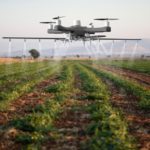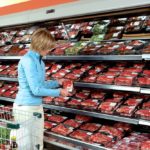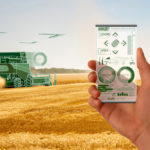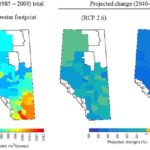Reading Time: 2 minutes Sao Paulo | Reuters — JBS SA, the world’s top meatpacker, said Wednesday it plans to combat destruction in the Amazon by monitoring its entire supply chain for deforestation by 2025, as pressure mounts from environmentalists and investors. Brazilian meatpackers are facing increasing criticism that beef production is fueling deforestation in the Amazon, where cleared […] Read more

JBS vows to monitor whole cattle supply chain’s impact on Amazon
Packer plans to move against cattle 'laundering'

Throne speech commits to rural broadband improvement
Rural health care, water management also on deck
Reading Time: 2 minutes The federal minority Liberal government is promising job creation, better rural internet access and a commitment to combating climate change in its newly revealed legislative plans. In an ambitious throne speech delivered Wednesday, Prime Minister Justin Trudeau’s party committed itself to implementing universal child care and extending or enhancing many of the economic measures put […] Read more

The carbon tax and how farmers can truly mitigate climate change
Take a deep breath. The real numbers don’t come close to justifying the anger of groups like APAS
Reading Time: 7 minutes “If the treatment doesn’t kill you, the disease will!” I can’t remember when I first heard this saying, or who said it but given the recent carbon tax costing by the Agricultural Producers Association of Saskatchewan (APAS), it seems an apt analogy. First, some background. In 2017, APAS hosted the Prairie Agricultural Carbon Summit, where […] Read more

Wheat in Whitehorse: How climate change helps feed Canada’s remote regions
Newfoundland and Labrador also pushing to expand arable land base
Reading Time: 3 minutes Winnipeg/Ottawa | Reuters — After failing to grow wheat in the Yukon territory 15 years ago, farmer Steve Mackenzie-Grieve gave it another shot in 2017. Thanks to longer summers, he has reaped three straight harvests. This spring he plans to sow canola on his family’s 450-acre farm near Whitehorse, a city not much further from […] Read more

New Brunswick postpones pesticide use hearings
Deadline extended for written submissions
Reading Time: 2 minutes The New Brunswick government’s planned public hearings on the use of glyphosate and other pesticides are postponed, and more time is being granted for the public to file written briefs. The provincial legislature’s all-party standing committee on climate change and environmental stewardship on Feb. 5 announced it would hold hearings in Fredericton March 24-27 “on […] Read more

NFU paper lays out solutions for climate, farming challenges
Reading Time: 2 minutes MarketsFarm — The global climate crisis is interlinked with the financial crisis on Canadian farms, according to a new discussion paper from the National Farmers Union (NFU). The paper proposes changes to agriculture practices that could help the sector become part of the solution to both major issues. Compiled by Darrin Qualman in collaboration with […] Read more

Canadians to spend more on food in 2020, report predicts
Reading Time: 2 minutes MarketsFarm — Canadians will spend two to four per cent more on food in 2020, according to the latest Canada Food Price Report from researchers at Dalhousie University’s Agri-Food Analytics Lab and the University of Guelph. The average family in the country will see its total food bill for groceries and restaurant meals rise by […] Read more

What the future farm could look like in 2030
Future farm: Maybe it seems more like fiction today, but every year brings this picture of the future closer
Reading Time: 6 minutes Big change is coming. In the words of Shrek, “Change is good, Donkey!” It’s also inevitable, which farmers probably know more than anyone else. There are, of course, differing opinions about what farming will look like 10 years from now. Will farms be larger? Probably. Will weather be more unpredictable? Almost certainly. Will technologies like […] Read more

How farmers can adapt to the new weather abnormal
The stable weather patterns of the ’80s and ’90s are gone, so we ask three climate scientists how to farm when the weather is unreliable
Reading Time: 6 minutes For many western Canadian farmers this is the fourth consecutive year with harvest progress seriously stymied by weather issues. Fall rains and snows have resulted in significant loss of crop quality and/or an increased reliance on costly drying of crops in each of those years. For some farmers, inclement weather has even resulted in crops […] Read more

University’s ‘Beefier Barley’ billboard binned
Reading Time: 3 minutes A billboard about Alberta barley’s prospects under climate change in the University of Alberta’s ‘Truth Matters’ promotion — a series of ads meant to spark discussion about its researchers’ work — has been winnowed out of the campaign. Jacqui Tam, the Edmonton-based U of A’s vice-president for university relations, announced Sunday it would withdraw the […] Read more


